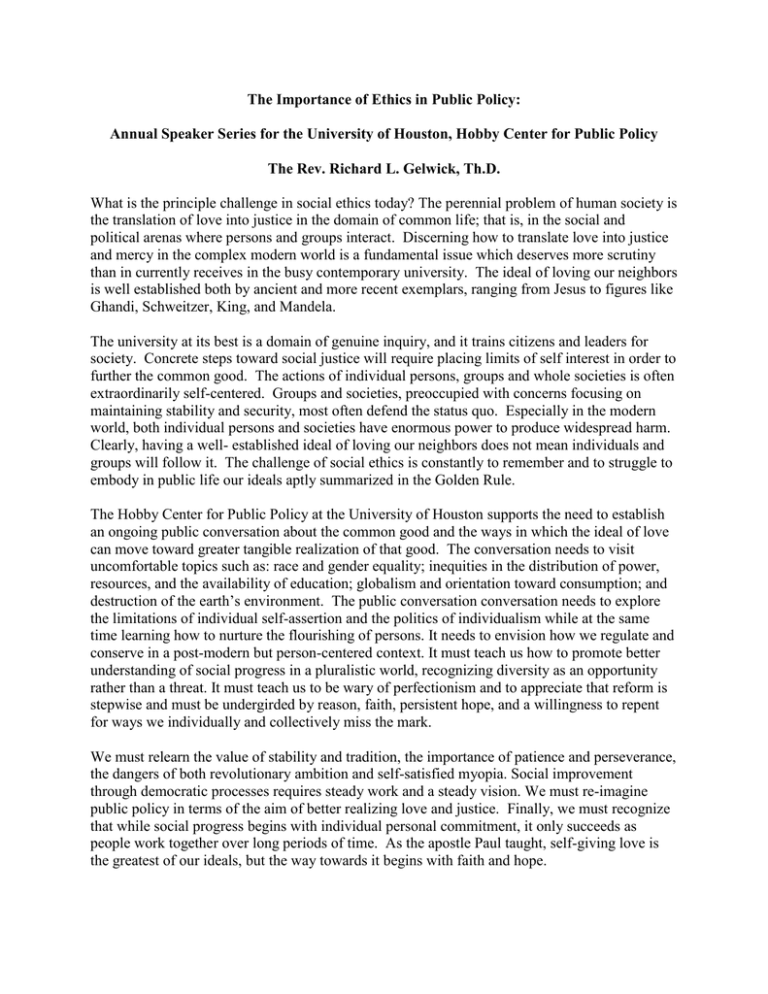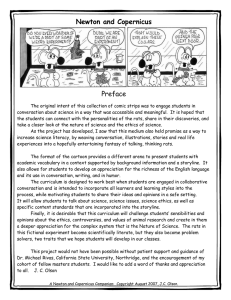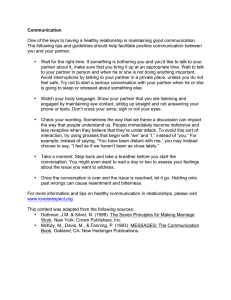The Importance of Ethics in Public Policy:
advertisement

The Importance of Ethics in Public Policy: Annual Speaker Series for the University of Houston, Hobby Center for Public Policy The Rev. Richard L. Gelwick, Th.D. What is the principle challenge in social ethics today? The perennial problem of human society is the translation of love into justice in the domain of common life; that is, in the social and political arenas where persons and groups interact. Discerning how to translate love into justice and mercy in the complex modern world is a fundamental issue which deserves more scrutiny than in currently receives in the busy contemporary university. The ideal of loving our neighbors is well established both by ancient and more recent exemplars, ranging from Jesus to figures like Ghandi, Schweitzer, King, and Mandela. The university at its best is a domain of genuine inquiry, and it trains citizens and leaders for society. Concrete steps toward social justice will require placing limits of self interest in order to further the common good. The actions of individual persons, groups and whole societies is often extraordinarily self-centered. Groups and societies, preoccupied with concerns focusing on maintaining stability and security, most often defend the status quo. Especially in the modern world, both individual persons and societies have enormous power to produce widespread harm. Clearly, having a well- established ideal of loving our neighbors does not mean individuals and groups will follow it. The challenge of social ethics is constantly to remember and to struggle to embody in public life our ideals aptly summarized in the Golden Rule. The Hobby Center for Public Policy at the University of Houston supports the need to establish an ongoing public conversation about the common good and the ways in which the ideal of love can move toward greater tangible realization of that good. The conversation needs to visit uncomfortable topics such as: race and gender equality; inequities in the distribution of power, resources, and the availability of education; globalism and orientation toward consumption; and destruction of the earth’s environment. The public conversation conversation needs to explore the limitations of individual self-assertion and the politics of individualism while at the same time learning how to nurture the flourishing of persons. It needs to envision how we regulate and conserve in a post-modern but person-centered context. It must teach us how to promote better understanding of social progress in a pluralistic world, recognizing diversity as an opportunity rather than a threat. It must teach us to be wary of perfectionism and to appreciate that reform is stepwise and must be undergirded by reason, faith, persistent hope, and a willingness to repent for ways we individually and collectively miss the mark. We must relearn the value of stability and tradition, the importance of patience and perseverance, the dangers of both revolutionary ambition and self-satisfied myopia. Social improvement through democratic processes requires steady work and a steady vision. We must re-imagine public policy in terms of the aim of better realizing love and justice. Finally, we must recognize that while social progress begins with individual personal commitment, it only succeeds as people work together over long periods of time. As the apostle Paul taught, self-giving love is the greatest of our ideals, but the way towards it begins with faith and hope.



